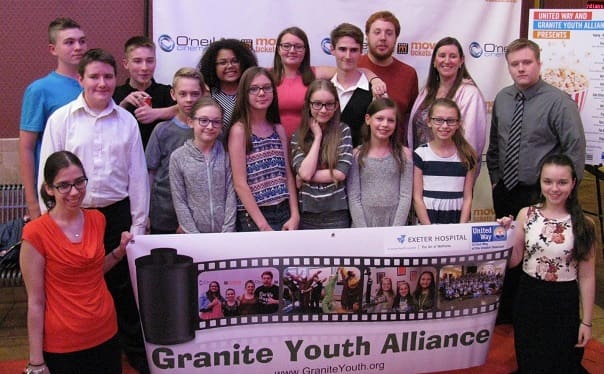
In New Hampshire, substance misuse affects many young people, who have family and friends that struggle with addiction, and in some cases, have lost their struggle. They see and feel the real impact of substance misuse and want to do their best to prevent others from this pain.
“Our young people decide the topics to address; marijuana and prescription medicine misuse are their primary concern,” said Celeste Clark, Executive Director at Raymond Coalition for Youth. “They want adults to know marijuana is harmful and often leads to young people moving onto stronger drugs. They have worked with the recovery community on several occasions and every time they learn that people, as teens, experimented with alcohol, moved to marijuana and eventually onto prescription drugs.”
The Raymond Coalition for Youth is located in Raymond, New Hampshire, a small rural community of approximately 10,200 people. In 2017, the coalition is celebrating 15 years of service, programming, and messaging. Through monthly networking, sharing, and learning meetings every month, coalition members have a chance to forge relationships with local, regional and state-wide partners. The meetings provide opportunity to connect with services and a consistent, reliable method to absorb information about the community’s issues.
However, the coalition notes that their biggest success is the involvement of youth. “We offer Youth Action groups at both our middle and high school. We have had literally hundreds of students who have been a part of these groups,” said Clark. “To quote a student, ‘RCFY is about kids and adults working together to make our community a better place.’”
Youth Action groups created videos to show their community the dangers of substance misuse and abuse. The middle school developed Side Effects Not Intended while the high school created Pill Pressure. The videos premiered at a film festival the coalition hosted.
Clark notes that the community is more likely to pay attention when young people speak up. The result? The Youth Risk Behavior study found that in the past 10 years, past 30-day rates of use for alcohol has decreased by 23 percent; marijuana by 5 percent.
“Involve your young people,” said Clark. “Ask them about the issues that are important to them and most importantly, listen to what they say. As adults, we can work with them and guide their great ideas into action. Having adults that care about what they have to say inspires young people to get involved.”

